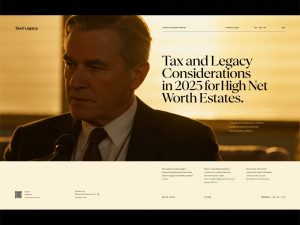Comprehensive Private Client Portfolio Services for Sophisticated Investors Sophisticated private client portfolio services represent the pinnacle of personalized wealth management, offering affluent individuals and families access to institutional-quality investment strategies tailored to their unique financial objectives and risk tolerances. These specialized services typically combine deep market expertise with comprehensive understanding of client circumstances to develop customized investment solutions that transcend traditional wealth management approaches.
The most successful private client relationships establish holistic frameworks that encompass asset allocation, risk management, tax optimization, and intergenerational planning within a unified wealth preservation strategy. Private client advisors typically conduct thorough assessments of client financial situations, investment experience, liquidity needs, and long-term goals before developing appropriate portfolio strategies that align with both immediate requirements and future aspirations. The advisory process involves regular portfolio reviews, performance monitoring, and strategic adjustments to ensure investment strategies remain responsive to changing market conditions and evolving client circumstances. Effective private client services provide access to exclusive investment opportunities, alternative asset classes, and sophisticated risk management techniques typically reserved for institutional investors, enabling affluent families to achieve enhanced diversification and potentially superior risk-adjusted returns. The integration of technology platforms and digital tools enhances the client experience by providing real-time portfolio visibility, comprehensive reporting capabilities, and seamless communication channels between clients and their advisory teams.Expert Luxury Asset Investment Advisory for Discerning Collectors Professional luxury asset investment advisors offer specialized expertise in navigating the complex landscape of high-value tangible assets, providing affluent investors with access to exclusive opportunities in collectibles, rare items, and premium investments that transcend traditional financial markets. These advisory services typically combine deep knowledge of specific luxury asset categories with comprehensive understanding of market dynamics, valuation methodologies, and acquisition strategies to help clients build
diversified portfolios of tangible wealth. The most successful luxury asset advisors develop specialized expertise in particular asset classes such as fine art, rare automobiles, vintage wines, collectible watches, or precious jewelry, enabling them to provide informed guidance on acquisition timing, authenticity verification, and long-term value preservation. Advisory relationships typically involve thorough assessment of client interests, collecting goals, and investment objectives to develop appropriate strategies for building luxury asset portfolios that align with both personal passions and financial considerations. The due diligence process for luxury investments often includes detailed analysis of provenance, condition, market trends, and potential appreciation factors to ensure acquisitions meet quality standards and investment expectations. Effective luxury asset advisory services provide access to exclusive networks of dealers, auction houses, and private collectors, enabling clients to acquire rare items that may not be available through conventional market channels. The integration of storage, insurance, and maintenance considerations into investment strategies represents an important aspect of comprehensive luxury asset management, ensuring proper care and preservation of valuable collections.Strategic Gold and Precious Metals Allocation for Wealth Preservation
Strategic allocation to gold & precious metals investment represents a time-tested approach to wealth preservation and portfolio diversification, offering affluent investors protection against inflation, currency devaluation, and geopolitical uncertainty through exposure to tangible stores of value. These investments typically encompass physical bullion, mining equities, exchange-traded funds, and various structured products that provide exposure to precious metals markets while addressing specific risk management and liquidity requirements. The most successful precious metals strategies combine thorough analysis of macroeconomic factors, currency trends, and market dynamics with appropriate sizing of allocations based on overall portfolio objectives and risk parameters. Investment advisors typically develop comprehensive precious metals programs that incorporate both tactical positioning based on short-term market opportunities and strategic allocations designed for long-term wealth preservation. The due diligence process for precious metals investments often includes detailed analysis of storage options, counterparty risks, liquidity considerations, and tax implications to ensure investments align with client circumstances and regulatory requirements. Effective precious metals advisory services provide access to institutional-quality storage facilities, secure transportation arrangements, and professional authentication services to ensure proper safeguarding of physical assets. The integration of precious metals into broader portfolio strategies typically involves careful consideration of correlation characteristics, volatility patterns, and rebalancing requirements to maintain appropriate exposure levels during different market environments. Advisory relationships include ongoing monitoring of global economic developments, central bank policies, and geopolitical events that may impact precious metals valuations and investment performance.
Exclusive Private Real Estate Investment Opportunities for Affluent Families
Sophisticated private real estate investments offer affluent families access to premium property opportunities that combine potential for capital appreciation, income generation, and portfolio diversification through exposure to tangible assets with intrinsic value. These investments typically encompass direct property acquisitions, real estate development projects, real estate investment trusts (REITs), and various private equity structures that provide exposure to commercial, residential, and specialized property sectors. The most successful real estate investment strategies combine thorough market analysis, property valuation expertise, and comprehensive due diligence to identify opportunities that align with specific investment objectives and risk tolerances. Investment advisors typically develop customized real estate programs that incorporate geographic diversification, property type allocation, and appropriate leverage strategies to optimize risk-adjusted returns while addressing liquidity requirements and investment horizons. The due diligence process for private real estate investments often includes detailed analysis of location fundamentals, property conditions, tenant quality, lease structures, and regulatory considerations to ensure investments meet quality standards and performance expectations. Effective real estate advisory services provide access to exclusive off-market opportunities, pre-development projects, and value-add situations that may offer enhanced return potential compared to publicly available property investments. The integration of tax optimization strategies, including opportunity zone investments, 1031 exchanges, and various depreciation benefits, represents an important consideration in comprehensive real estate portfolio management. Advisory relationships include ongoing property management oversight, performance monitoring, and strategic repositioning recommendations to ensure real estate investments continue to align with evolving market conditions and client objectives.
Specialized Art Investment Advisory Services for Discerning Collectors
Professional art investment advisory USA services provide affluent collectors with expert guidance on building valuable art portfolios that combine aesthetic appreciation with potential financial returns through strategic acquisition and management of fine art assets. These specialized advisory services typically combine deep art historical knowledge, market expertise, and investment analysis to help clients navigate the complex landscape of art acquisition, valuation, and collection management. The most successful art advisory relationships develop comprehensive understanding of client tastes, collecting goals, and investment parameters to create tailored strategies for building art portfolios that reflect personal interests while addressing financial considerations. Art investment advisors typically possess specialized expertise in specific periods, movements, or artists, enabling them to provide informed guidance on acquisition opportunities, authenticity verification, and potential appreciation factors. The advisory process often involves thorough provenance research, condition assessments, and market analysis to ensure acquisitions meet quality standards and investment expectations. Effective art advisory services provide access to exclusive networks of galleries, dealers, auction houses, and private collectors, enabling clients to acquire significant works that may not be available through conventional market channels. The integration of collection management considerations, including insurance, storage, conservation, and exhibition planning, represents an important aspect of comprehensive art investment advisory. Advisory relationships include ongoing monitoring of art market trends, auction results, and artist developments to inform strategic decisions about collection management, acquisition timing, and potential divestment opportunities. The development of documented provenance and exhibition history enhances both the cultural significance and financial value of art collections over time.

Integrated Wealth Management Frameworks for Comprehensive Portfolio Oversight
Developing integrated wealth management frameworks represents an essential component of successful private client portfolio services, enabling affluent families to coordinate various investment strategies, risk management approaches, and financial planning considerations within a unified wealth preservation structure. These comprehensive frameworks typically incorporate multiple asset classes, investment vehicles, and strategic approaches to create diversified portfolios that address both immediate financial requirements and long-term legacy objectives. The most successful integrated approaches combine traditional investments such as equities and fixed income with alternative assets including private equity, hedge funds, real estate, and collectibles to achieve enhanced diversification and potentially superior risk-adjusted returns. Wealth management frameworks typically establish clear investment policies, asset allocation targets, and risk tolerance guidelines that provide structure for portfolio construction while maintaining flexibility to adapt to changing market conditions. The integration of tax optimization strategies, including tax-loss harvesting, charitable giving vehicles, and various estate planning techniques, represents an important consideration in comprehensive wealth management. Effective frameworks incorporate regular portfolio rebalancing, performance monitoring, and strategic reviews to ensure investment strategies remain aligned with client objectives and responsive to evolving circumstances. The development of intergenerational wealth transfer plans, family governance structures, and philanthropic strategies ensures that wealth management approaches address both financial considerations and family values across multiple generations. Technology platforms and digital tools enhance integrated wealth management by providing comprehensive portfolio aggregation, performance reporting, and scenario analysis capabilities that enable informed decision-making and transparent communication between clients and their advisory teams.
Risk Management and Due Diligence Protocols for Luxury Asset Investments
Implementing comprehensive risk management and due diligence protocols represents a critical aspect of successful luxury asset investment advisors services, ensuring that affluent investors can navigate the unique risks associated with high-value tangible assets while pursuing attractive return opportunities. These specialized protocols typically encompass multiple layers of risk assessment, including authenticity verification, valuation analysis, market liquidity considerations, and physical security requirements specific to different luxury asset categories. The most successful risk management approaches combine traditional financial risk analysis with specialized expertise in particular asset classes to develop tailored frameworks that address the unique characteristics of luxury investments. Due diligence processes often involve thorough provenance research, expert authentication, condition assessments, and market analysis to ensure acquisitions meet quality standards and investment expectations. Risk management protocols typically establish clear guidelines for acquisition sizing, diversification requirements, and exit strategies to ensure appropriate risk control within overall portfolio contexts. The integration of insurance considerations, including appropriate coverage levels, policy terms, and claims handling procedures, represents an important aspect of comprehensive luxury asset risk management. Effective protocols include ongoing monitoring of market conditions, regulatory changes, and technological developments that may impact the valuation, security, or liquidity of luxury investments. Advisory relationships provide access to specialized networks of conservators, appraisers, security experts, and legal professionals who can assist with various aspects of luxury asset management and risk mitigation. The development of documented acquisition processes, storage arrangements, and disposition strategies ensures proper handling of luxury assets throughout their investment lifecycle while maintaining transparency and accountability for all stakeholders involved.
Strategic Asset Allocation and Portfolio Construction Methodologies
Developing sophisticated asset allocation and portfolio construction methodologies represents a fundamental component of effective private client portfolio services, enabling affluent investors to build diversified investment structures that align with specific financial objectives, risk tolerances, and time horizons. These methodological approaches typically combine quantitative analysis, qualitative assessment, and forward-looking market perspectives to create optimized portfolio structures that balance return objectives with appropriate risk management considerations. The most successful allocation methodologies incorporate multiple asset classes, including traditional investments, alternative strategies, and various satellite positions, to achieve enhanced diversification and potentially superior risk-adjusted returns. Portfolio construction processes typically begin with thorough assessment of client circumstances, including financial resources, investment experience, liquidity requirements, tax considerations, and long-term goals to establish appropriate investment parameters and constraints. The development of strategic asset allocation targets provides framework for portfolio construction while maintaining flexibility to incorporate tactical opportunities and respond to changing market conditions. Effective methodologies incorporate rigorous risk analysis, including correlation assessment, volatility modeling, and stress testing, to ensure portfolio structures remain robust across various market environments. The integration of tax-efficient investment vehicles, location optimization strategies, and various hedging techniques enhances after-tax returns and risk management within comprehensive portfolio structures. Ongoing portfolio monitoring, performance attribution, and rebalancing processes ensure that investment strategies remain aligned with established allocation targets and responsive to evolving market dynamics. The utilization of technology platforms and analytical tools enhances portfolio construction capabilities by providing comprehensive data analysis, scenario modeling, and optimization algorithms that support informed decision-making and transparent communication of investment strategies and performance outcomes.
Intergenerational Wealth Transfer and Legacy Planning Considerations
Comprehensive intergenerational wealth transfer and legacy planning represents an essential consideration within sophisticated private client portfolio services, ensuring that affluent families can preserve and transition wealth across multiple generations while addressing various financial, tax, and personal considerations. These specialized planning approaches typically combine legal structures, investment strategies, and family governance frameworks to create cohesive wealth transfer plans that align with both financial objectives and family values. The most successful legacy planning strategies develop thorough understanding of family dynamics, individual aspirations, and intergenerational relationships to create customized approaches that address specific circumstances and preferences. Wealth transfer planning typically involves careful consideration of various estate planning techniques, including trust structures, family limited partnerships, charitable vehicles, and various gifting strategies designed to optimize tax efficiency and preserve family wealth. The integration of investment strategies with estate planning considerations ensures that portfolio structures support long-term wealth preservation objectives while maintaining appropriate liquidity for transfer requirements. Effective legacy planning includes development of family governance frameworks, communication protocols, and educational programs that prepare younger generations for responsible wealth management and stewardship. The coordination of various professional advisors, including attorneys, accountants, trust officers, and investment managers, ensures comprehensive implementation of wealth transfer strategies across multiple jurisdictions and legal systems. Ongoing review and adjustment of legacy plans ensures they remain responsive to changing family circumstances, regulatory developments, and tax law modifications that may impact wealth transfer strategies over time. The integration of philanthropic planning and impact investing considerations allows families to create lasting legacies that extend beyond financial wealth to include social, environmental, and community impact objectives that reflect shared values and aspirations across generations.




